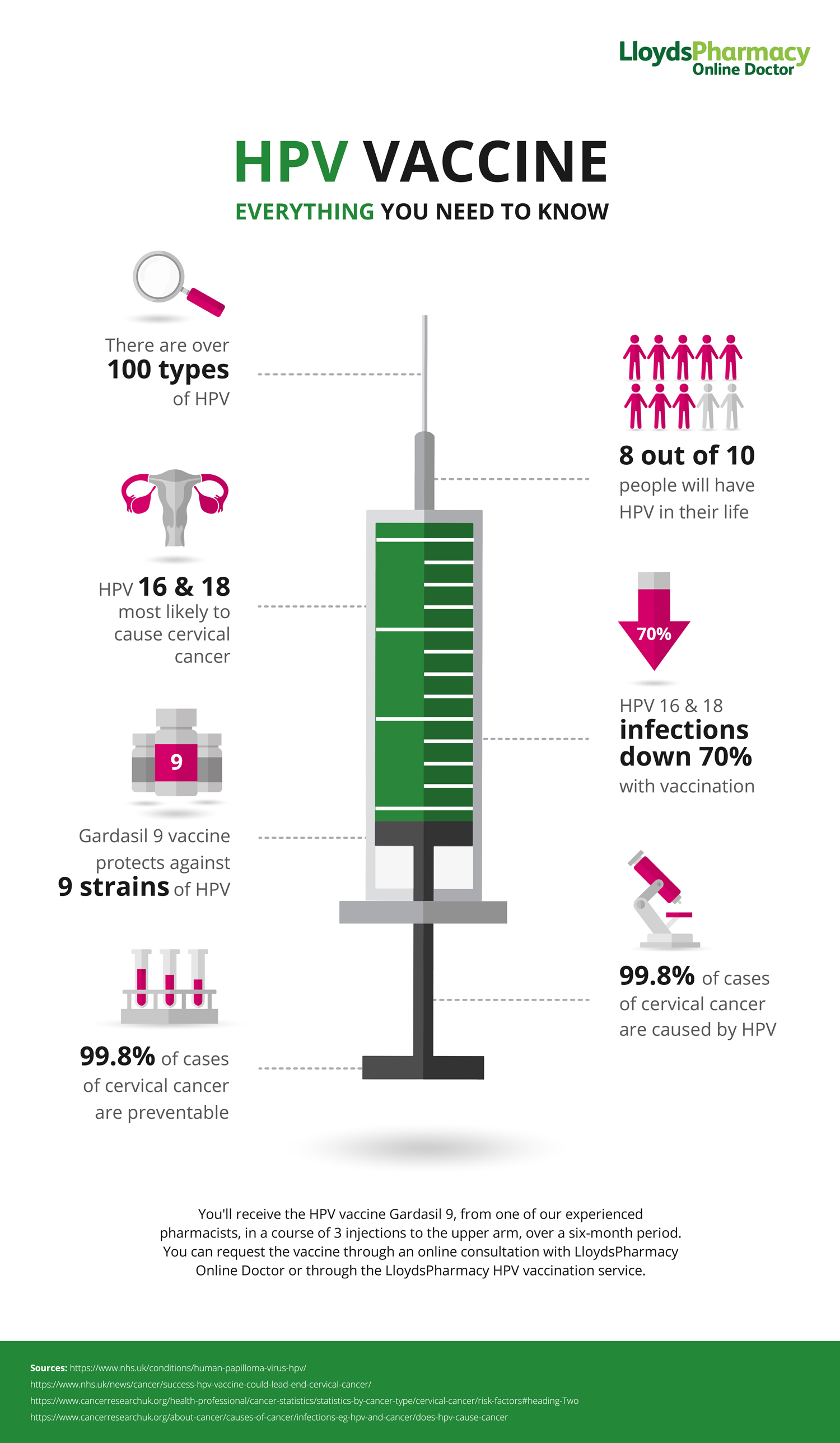Is HPV curable?
Human papillomavirus (HPV) is a very common virus that most of us (up to 8 out of 10) will have at some point in our lives. While most HPV infections will clear up naturally in less than two years, some infections can cause genital warts, the infection can also lay dormant and can in some cases trigger uncontrolled growth of cells, which can in turn lead to cancer.
There are a wide range of cancers associated with HPV, the most common being cervical, vaginal, vulval, penile and anal, as well as some throat and mouth cancers, particularly those of the tongue and tonsil.
In this article we’re going to look at whether HPV can be cured and how you can protect yourself from catching the virus in the first place.
How is HPV transmitted?
HPV is spread through close contact. The strains of the virus associated with genital warts or certain cancers, infect the skin and any moist membrane such as lining of the mouth and throat, anus, cervix, vagina and vulva. So, HPV is most often transmitted through sexual contact.
Symptoms of HPV
Most people who have HPV will experience no symptoms. So, unless you are tested during a smear test (as part of the national cervical screening programme for example), it is very hard to know if you have the virus or not.
People with a cervix over 25 are invited to regular cervical screenings, widely known as smear tests. These tests aim to prevent cancer by identifying any abnormalities at an early stage. This can then be monitored and/or treated, so that they do not get the chance to become cancerous.
Certain types of HPV cause most cases of genital warts, an STI that cause small fleshy growths, bumps or skin changes anywhere on the genitals or around the anus or on the upper thighs.
Some people confuse genital warts with other STIs. So if you’re worried about something or you’re experiencing something unusual for you, it’s always a good idea to take an STI test.
Can HPV be cured?
The short answer is no, there’s no known HPV cure. But there are steps you can take to prevent catching the virus. Practising safe sex, i.e. using condoms, and washing sex toys, can help prevent the spread.
You can also get vaccinated against HPV. Whilst these vaccines won’t protect you from ever catching HPV, they can protect you from the strains that are most likely to cause you cancer.
Can you cure genital warts?
No, there’s no cure for genital warts, but if you’re diagnosed, it can usually be treated. You might be prescribed a cream to put on the warts, a clinician might be able to freeze the warts or in some cases they might be cut/lasered off.
Your warts may come back, but your body might fight the virus off on its own.
HPV vaccine
So with no symptoms, no cure, and potentially serious consequences if left undetected, the thought of catching HPV could be a little scary. So how can we best protect ourselves against HPV? Right now, the answer is the HPV vaccine – most commonly Gardasil (which is available to some on the NHS) or Gardasil 9, which is available privately.
There are actually three types of HPV vaccines. They protect against two (Cervarix, which is not widely available any longer), four (Gardasil) and nine (Gardasil 9) strains of the virus. The vaccine that protects against four strains is currently being offered to boys and girls aged 12-13 as part of the National Immunisation Programme, this is being phased out to be replaced by Gardasil 9.
The NHS also offers the vaccination to those who went to school in the UK, were eligible for the vaccine, but missed it, as well as men under 45 who have sex with men.
Gardasil 9 is the vaccine we can prescribe to you privately, and will protect against 9 strains of the virus.
Can the HPV vaccine cure HPV
No, the HPV vaccine doesn’t cure HPV, it protects you against it. The HPV vaccine gives you protection from some of the most ‘high-risk’ strains of the virus.
Gardasil and Gardasil 9 protect against two strains of the virus which are responsible for 70% of cervical cancers, 63% of penile cancers, as well as further two strains that are responsible for 90% of genital warts. Gardasil 9 protects against five further strains of the virus, accounting for 20% more cases of cervical cancer.

Can you treat HPV?
Although there’s no cure for HPV, there are treatments available for genital warts and the cell changes the virus might cause.
Is it possible to treat HPV naturally?
Again the answer here is no, there is no natural cure for HPV infections. Many people’s bodies will fight off the HPV without them knowing, and the virus will go within two years. So while there may be no natural or medical cure, your body may just naturally fight off the virus.
Why is HPV incurable?
HPV can’t be cured as there has not yet been a treatment or cure developed. There is research underway in the US into vaccines that treat precancerous or cancerous lesions that are caused by HPV. But these are very much in the early stages of testing, safety and efficacy. While the question on how to cure HPV remains open, prevention through vaccination is the best way to protect yourself from the virus.
References
https://www.jostrust.org.uk/information/hpv/what-is-hpv
https://www.tht.org.uk/hiv-and-sexual-health/sexual-health/stis/genital-warts-and-hpv
http://www.ashasexualhealth.org/a-cure-for-hpv-evaluating-hpv-treatment-options/
https://www.nhs.uk/conditions/human-papilloma-virus-hpv/
https://www.nhs.uk/conditions/cervical-screening/
https://www.letstalkaboutit.nhs.uk/worried-about-stis/preventing-an-sti/
https://www.nhs.uk/conditions/vaccinations/who-should-have-hpv-cervical-cancer-cervarix-gardasil-vaccine/
https://www.cancer.gov/types/cervical/research/gardasil9-prevents-more-hpv-types
https://vk.ovg.ox.ac.uk/vk/hpv-vaccine
https://www.nhs.uk/conditions/genital-warts/






